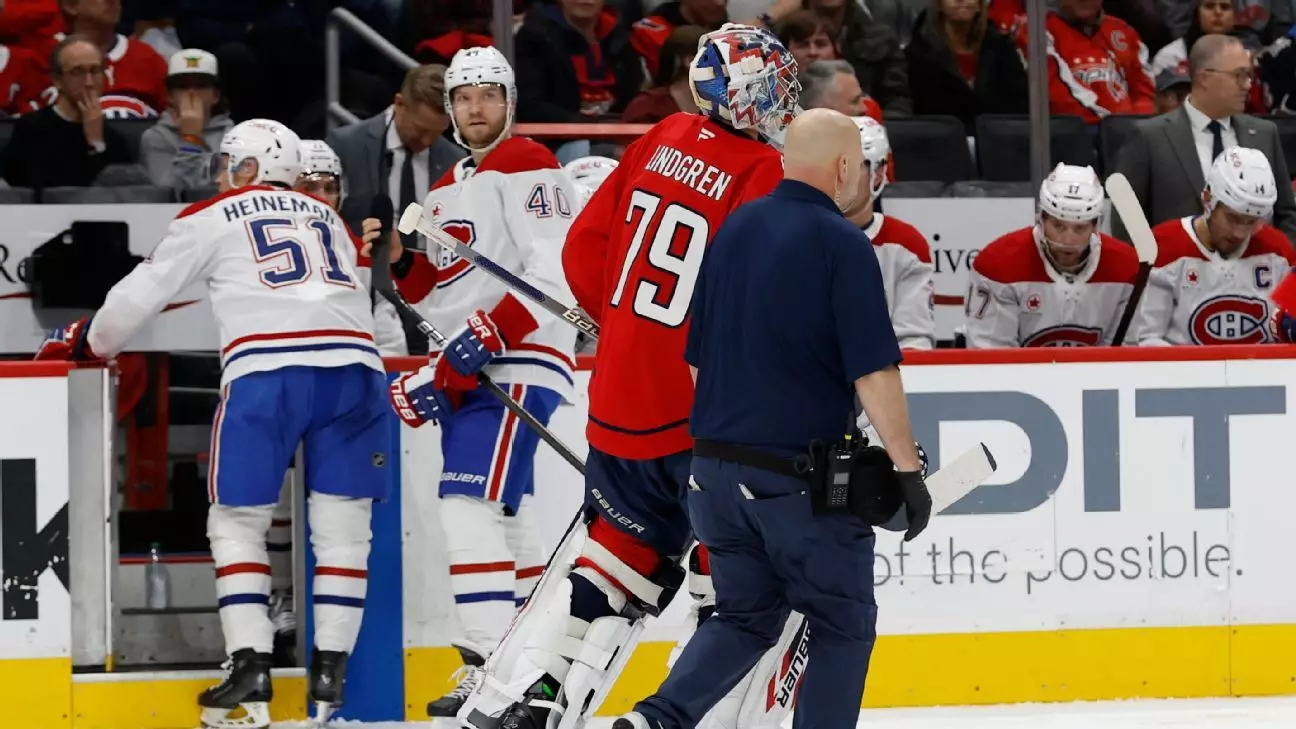The Washington Capitals find themselves navigating significant challenges following the recent injury to goalie Charlie Lindgren. On a seemingly routine night at the Capital One Arena, Lindgren sustained a concussion after a collision during a match against the Montreal Canadiens. This incident occurred just shortly into the second period when a mix-up involving players Nick Suzuki and Brandon Duhaime introduced an unexpected turn of events into the game, forcing Lindgren to leave the ice and subsequently land on injured reserve.
Lindgren’s departure from the game marked a crucial shift, not only in the match dynamics against the Canadiens—which the Capitals ultimately lost in overtime—but also in the team’s overall strategy for the remainder of the season. With Lindgren’s injury, the Capitals are now faced with filling the critical role of starting goalie at a crucial juncture in the season.
Analyzing Lindgren’s Contributions
Before his injury, Lindgren was holding his ground, having blocked all nine shots faced before his exit. His performance up to that point showcased not just his skill but also his importance to the team’s defense, providing a solid backbone for the Capitals’ attempts to secure victories. This season, he has delivered a commendable record of 10 wins against 8 losses, a respectable goals-against average of 2.65, and a save percentage of .901. However, even amidst this statistical evidence of his capabilities, the mounting pressure and expectations on a starting goalie in the NHL cannot be overstated, significantly amplifying the stakes for the Capitals.
In lieu of Lindgren, the Capitals have turned their gaze to the AHL, recalling Hunter Shepard from the Hershey Bears. At 29 years old, Shepard brings a wealth of experience to the roster, having been recognized as the AHL MVP in 2023. This season, he has accrued impressive stats himself, with a record of 15-7-1 and a GAA of 2.68. There’s a considerable opportunity for Shepard as he gears up to potentially make his NHL debut against the Nashville Predators.
The transition from AHL to NHL is a considerable leap, one that can often reveal a player’s true potential or expose their shortcomings under heightened pressure. Shepard has shown promise in past appearances with the Capitals, but the challenge remains: can he replicate his AHL success at the NHL level during this pivotal moment for the team?
What awaits the Capitals is a combination of anxiety and anticipation. Lindgren’s anticipated recovery could put him back in action as early as January 18 against the Pittsburgh Penguins, a crucial game in the competitive league landscape. Until then, the team must rally around Shepard — who may become the starting goalie for the foreseeable future—and adapt quickly under these changing circumstances.
Additionally, the Capitals will need to solidify their defensive strategies to mitigate any vulnerabilities during Lindgren’s absence. It will be imperative for both the coaching staff and players to ensure that they maintain team morale while adapting to the uncertainty that comes with an injured key player.
In essence, the Capitals’ current predicament is both a test of resilience and an opportunity for growth. The performance of Hunter Shepard could redefine expectations for the team, all while they strive to navigate through this delicate period in their season.

